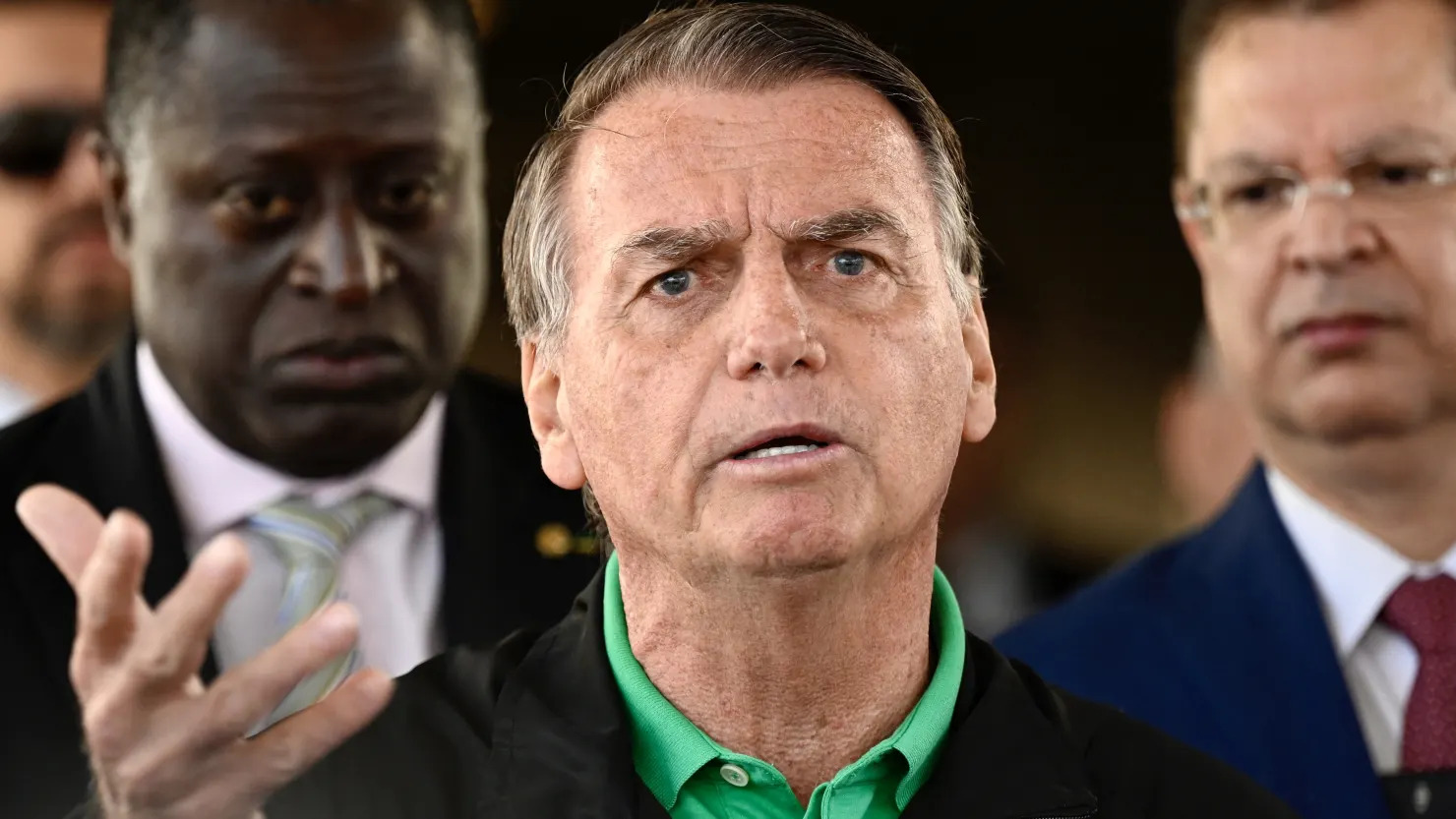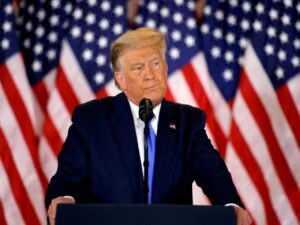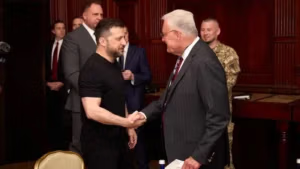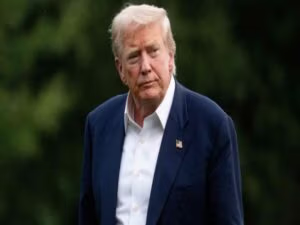A high-stakes showdown is brewing between Washington and Brasília after Brazil’s Supreme Court sentenced former President Jair Bolsonaro to 27 years and three months in prison for plotting a coup.
The ruling has set off a cascade of political, diplomatic, and economic tensions, drawing in not only Bolsonaro’s allies but also the United States’ top officials.
On Thursday, U.S. Secretary of State Marco Rubio sharply condemned the conviction, calling it “unjustly ruled” and warning that Washington would “respond accordingly” to what he described as a “witch hunt” against Bolsonaro.
The political persecutions by sanctioned human rights abuser Alexandre de Moraes continue, as he and others on Brazil's supreme court have unjustly ruled to imprison former President Jair Bolsonaro.
— Secretary Marco Rubio (@SecRubio) September 11, 2025
The United States will respond accordingly to this witch hunt.
The U.S. Treasury Department had already taken a hard line against de Moraes, sanctioning him on July 30. That same day, former U.S. President Donald Trump imposed tariffs of up to 50% on most Brazilian imports in retaliation for Bolsonaro’s prosecution, escalating an already fragile bilateral relationship.
Brazil’s current leader, President Luiz Inacio Lula da Silva, hit back forcefully. Denouncing Washington’s actions as an infringement on Brazil’s sovereignty, he said his nation “will not accept anyone’s control.” He stressed that the case against those accused of orchestrating a coup was “a matter solely for the country’s justice system and not subject to any inference or threats that undermine the independence of national institutions.”
Da Silva also pledged retaliation against “any unilateral tariff increases,” rejecting U.S. claims of a trade deficit with Brazil. Citing official U.S. customs data, he said Washington had enjoyed a surplus of around $410 billion in goods and services trade over the last 15 years, including a total goods trade surplus of $154 billion between 2010 and 2024.
Bolsonaro, a close ally of Trump, has actively sought U.S. backing. His son, a Brazilian congressman, met with U.S. Treasury Secretary Scott Bessent last month to lobby for sanctions against Brazilian officials involved in the trial.
Analysts warn the standoff is unlikely to ease soon. Morningstar noted in a report that ties between the two countries are at “their lowest point in decades” and predicted more turbulence. Potential U.S. moves include steeper tariffs, scrapping existing exemptions, and expanding sanctions against Brazilian officials. “The relationship is set to worsen before it gets better,” the firm said.
The ruling makes Bolsonaro the first former Brazilian president ever convicted for threatening democracy. Four of five justices found him guilty of conspiring to stay in power through a military coup plan that included the assassination of President da Silva, a decision that has not only shaken Brazil’s politics but is now reverberating across global diplomacy.






